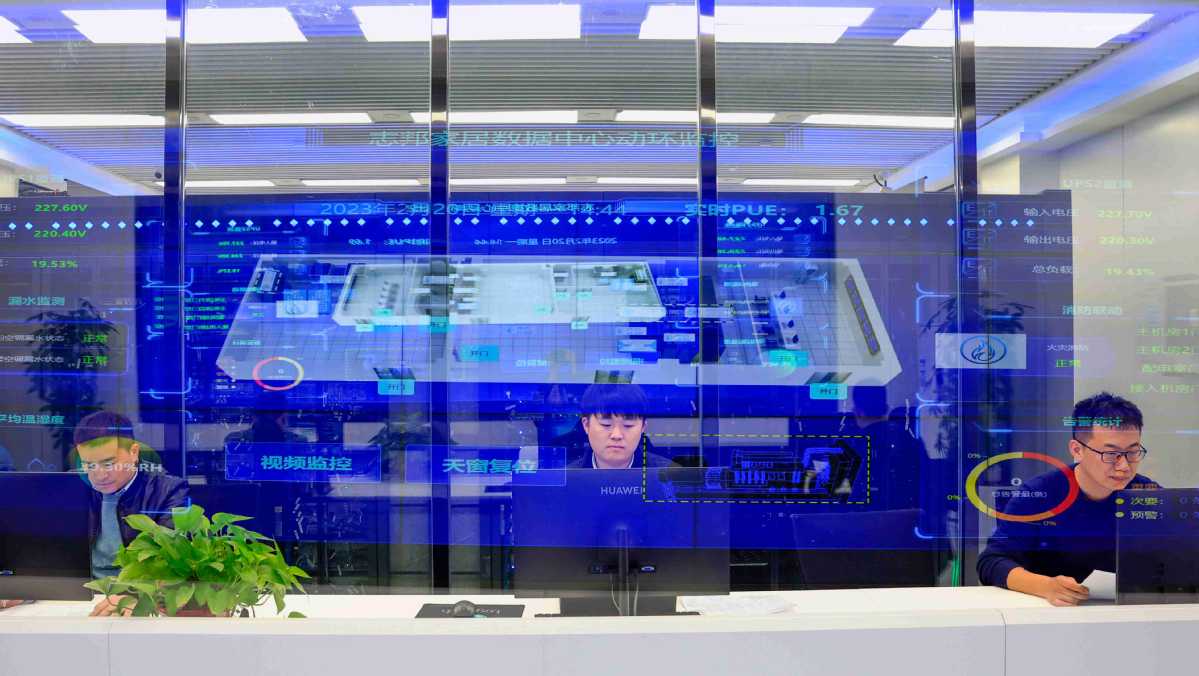
Experts call for deeper integration with real economy to spur high-level development
Chinese home appliance giant Haier Group's production base in Tianjin has hit upon a novel idea.
It is offering consumers a chance to customize a washing machine remotely, just by using their mobile phones. Customers get to choose the functions, appearance and design of a washing machine without having to enter a physical store. Once they place an order, intelligent equipment at Haier's interconnected factory automatically reads the information and starts production, tailor-made for each client.
It is using cutting-edge digital technologies, including 5G, artificial intelligence and big data, to improve the workshop's productivity and cut energy consumption by more than 30 percent.
Haier's digitalization push is an example of how Chinese manufacturing companies are embracing the digital economy, mainly represented by new-generation information technologies, and serving as a key engine to drive economic growth.
China's emphasis on developing the digital economy and bolstering the transformation and upgrade of its traditional industries will provide fresh impetus to the country's high-quality development and enhance its core competitiveness on the global stage, officials, experts and business leaders have said.
They have called for greater efforts to push ahead with the construction of digital infrastructure, accelerate the building of basic systems for data and strengthen international exchanges and cooperation in the digital economy domain, as part of a broader push to promote in-depth integration of the digital and real economies.
China will ratchet up resources to achieve breakthroughs in core technologies in key fields, accelerate its performance in emerging industries, including AI, advanced computing and 6G, and step up the establishment of a national unified data registration and data asset evaluation service platform, said Wang Jiangping, vice-minister of industry and information technology, during the China International Big Data Industry Expo 2023 held last month in Guiyang, Guizhou province.
The country had built more than 2.64 million 5G base stations by the end of March, and the number of 5G mobile phone users had reached 620 million, the ministry said.
Emerging sectors, such as data centers, cloud computing and the internet of things, saw revenues rise more than 32 percent year-on-year last year, and the value of the country's core AI industries had exceeded 500 billion yuan ($70.2 billion), the ministry said.

